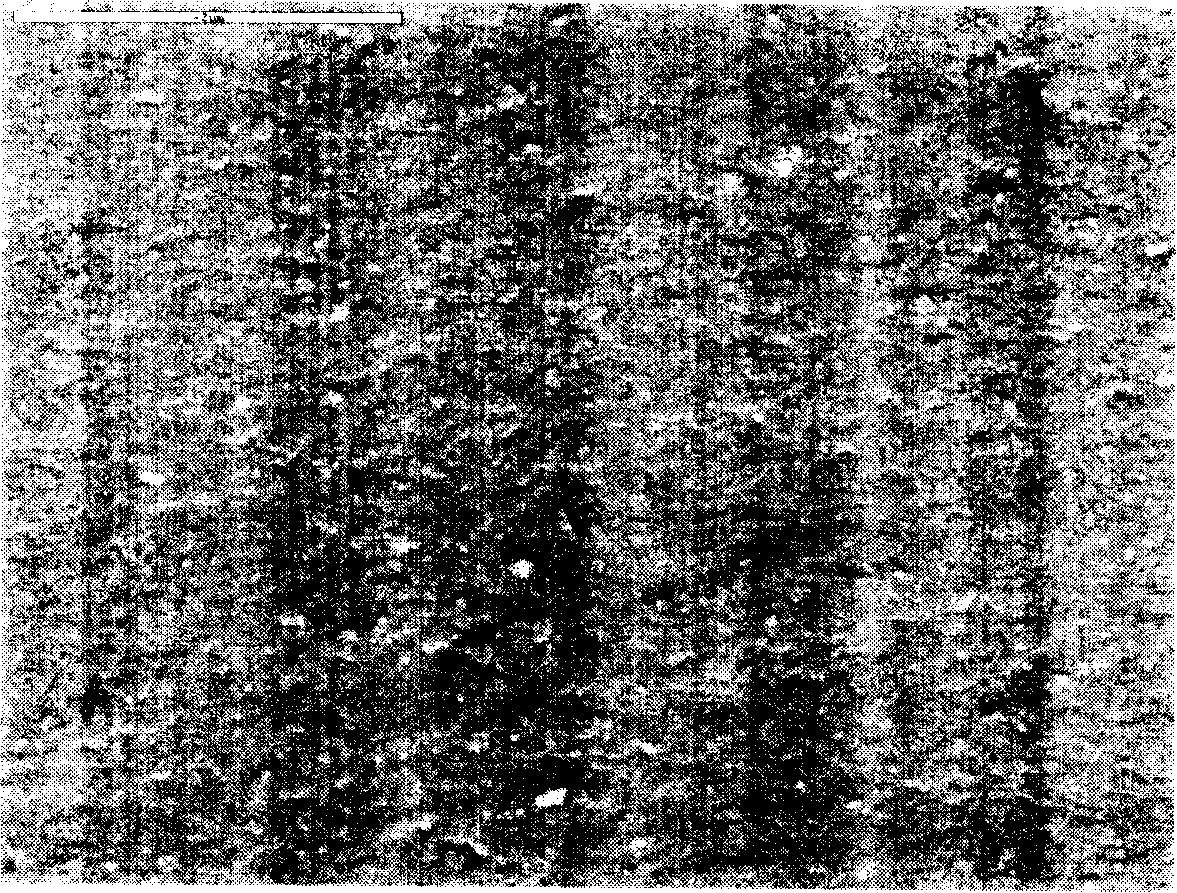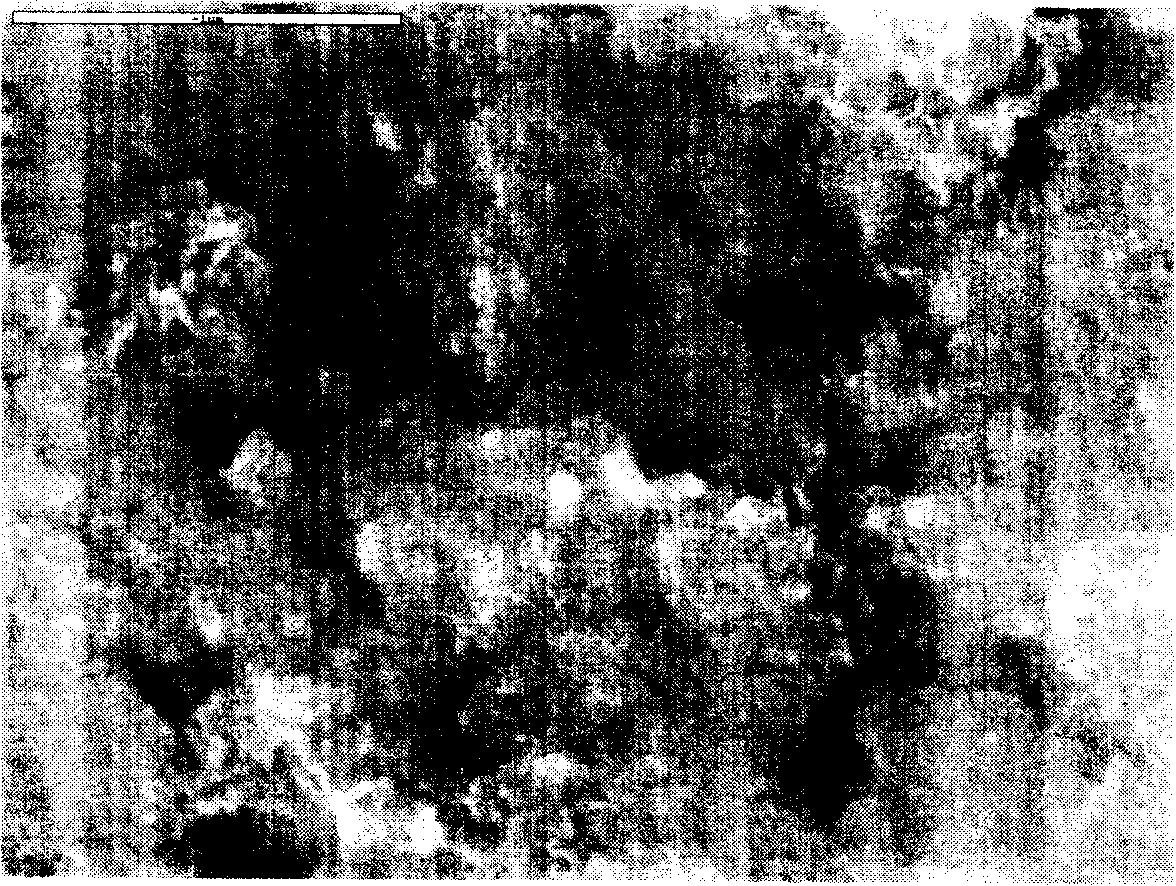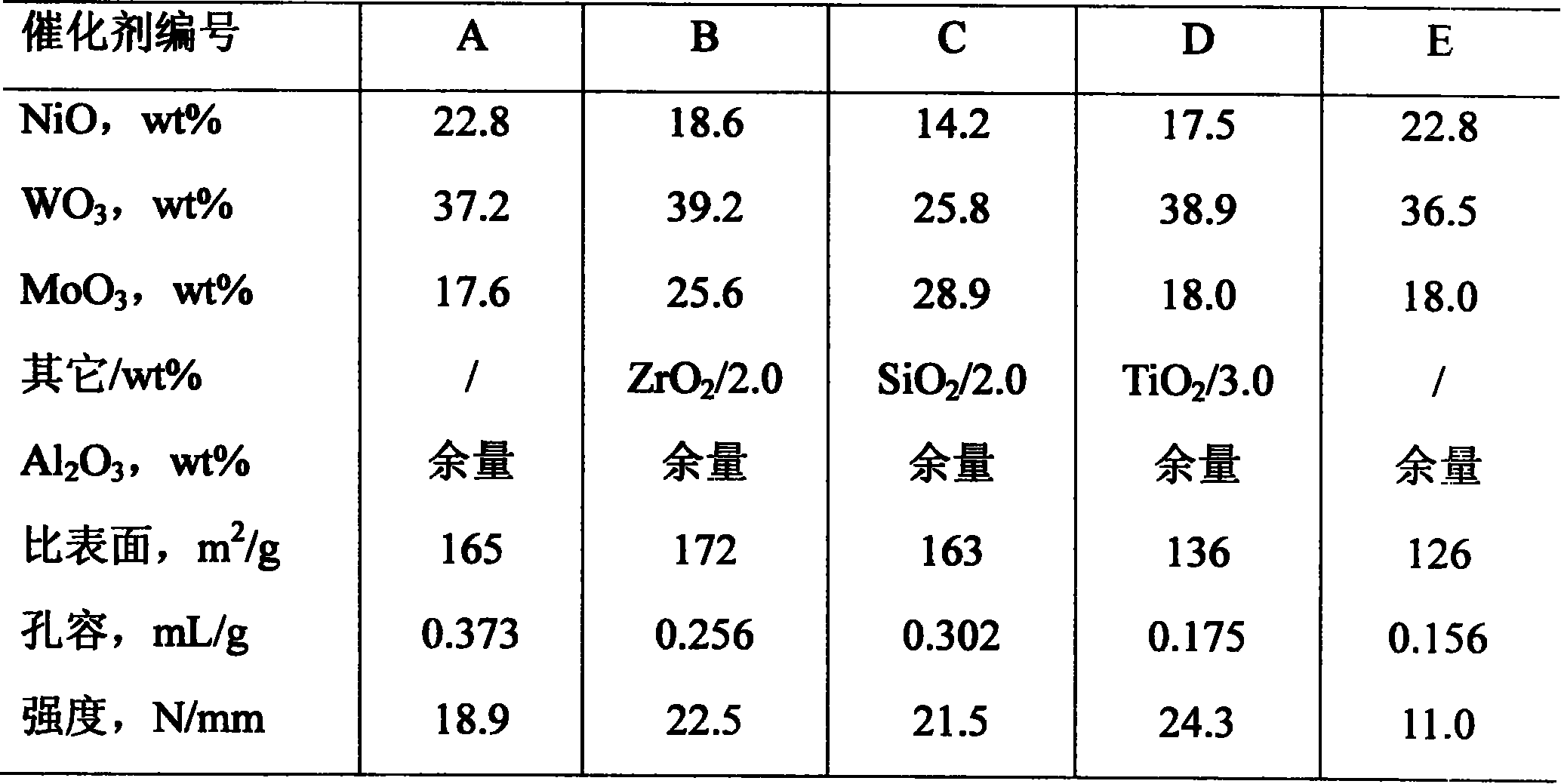Preparation of hydrogenation catalyst
A technology of catalysts and oxides, which is applied in the direction of catalyst activation/preparation, chemical instruments and methods, physical/chemical process catalysts, etc. It can solve problems such as coordination and coordination of different metals not involved, high metal content of catalysts, loss of activity, etc.
- Summary
- Abstract
- Description
- Claims
- Application Information
AI Technical Summary
Problems solved by technology
Method used
Image
Examples
preparation example Construction
[0019] The invention provides the preparation method of catalyst, a kind of concrete process step is as follows:
[0020] 1. Ni x W y o z Complex oxide precursors and MoO 3 Preparation of the mixture
[0021] Prepare a mixed salt solution A containing active metal Ni, W components and additives according to the content ratio of the catalyst components. The nickel-containing salt can be nickel sulfate, nickel nitrate, nickel chloride, etc. The tungsten-containing salt can be sodium tungstate, ammonium metatungstate, etc. Auxiliaries generally include one or more of P, F, Ti, Si, B, Zr, etc. An aluminum-containing alkaline mixed solution B is prepared according to the content ratio of the catalyst components, and the aluminum-containing alkaline mixed solution is sodium metaaluminate solution. Add material A and material B concurrently into a reaction tank with clean water to form a gel. The gelation temperature is 30-80°C. In order to ensure that the composition of the ca...
Embodiment 1
[0032] Add 500mL of water into the dissolution tank 1, dissolve 40g of nickel chloride, then add 44g of ammonium metatungstate to dissolve, and prepare acidic working solution A. Add 500mL of water into the dissolution tank 2, then add 30g of sodium metaaluminate to dissolve, and prepare alkaline working solution B. Add 350mL of water into the reaction tank, and the temperature rises to 60°C. Under the condition of stirring, add solution A and solution B into the reaction tank in parallel to form gel, the gel forming temperature is 60°C, the gel forming time is 0.5 hour, and the pH value of the slurry during the gel forming process is 8.0. Aging for 1 hour after gel forming. Then filter, add 600ml of clean water and 18g of molybdenum trioxide to the filter cake, beat and stir evenly, filter, dry the filter cake at 80°C for 5 hours, then extrude into strips, wash with clean water for 3 times, and dry the wet strips at 120°C for 5 hours , and calcined at 500°C for 4 hours to o...
Embodiment 2
[0034] According to the method of Example 1, according to the composition ratio of the catalyst B in Table 1, nickel chloride, ammonium metatungstate and zirconium oxychloride were added into the dissolution tank 1 to prepare the acidic working solution A. Add sodium metaaluminate to dissolving tank 2 to prepare alkaline working solution B. Add 350mL of water into the reaction tank, and the temperature rises to 40°C. Under the condition of stirring, add solution A and solution B into the reaction tank in parallel to form a gel, the gel forming temperature is 40°C, the gel forming time is 2 hours, and the pH value of the slurry during the gel forming process is 8.5. Aging for 2 hours after gel forming. Then filter, wash the filter cake twice with 500mL of clean water, add clean water and molybdenum trioxide, beat and stir evenly, filter, dry the filter cake at 70°C for 7 hours, then extrude it, wash it twice with clean water, wet the bar It was dried at 100°C for 8 hours and ...
PUM
 Login to View More
Login to View More Abstract
Description
Claims
Application Information
 Login to View More
Login to View More - R&D
- Intellectual Property
- Life Sciences
- Materials
- Tech Scout
- Unparalleled Data Quality
- Higher Quality Content
- 60% Fewer Hallucinations
Browse by: Latest US Patents, China's latest patents, Technical Efficacy Thesaurus, Application Domain, Technology Topic, Popular Technical Reports.
© 2025 PatSnap. All rights reserved.Legal|Privacy policy|Modern Slavery Act Transparency Statement|Sitemap|About US| Contact US: help@patsnap.com



